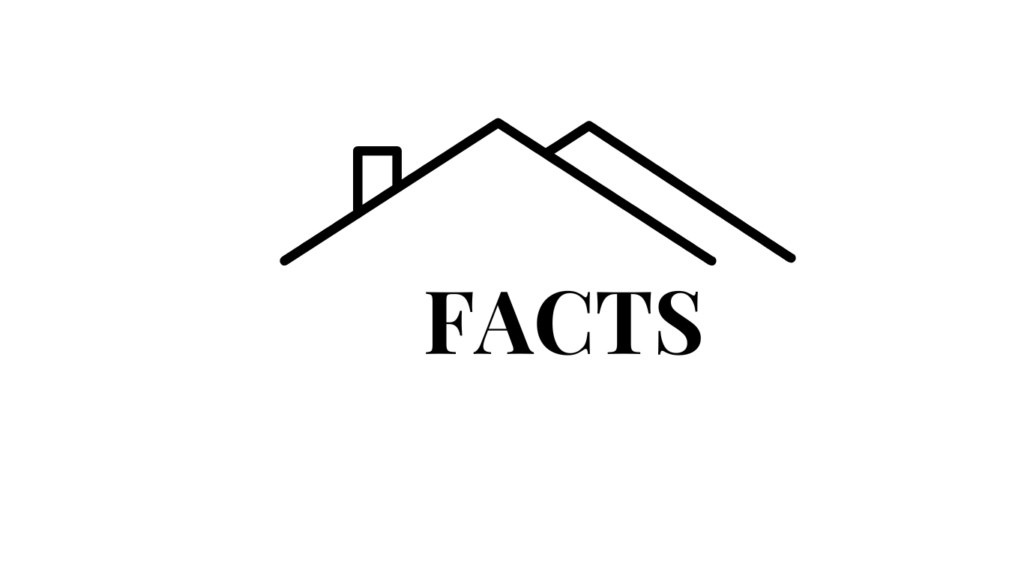Capital Gains On Inherited Property
“Inherited A Property“

If you inherited a property, it is very important to know and understand your tax liabilities before you decide to keep it or sell it. Capital gains on inherited property are a bit different from other assets. When selling an inherited house in Utah the entire profit isn’t taxable. Still, capital gain tax is payable on any amount you made above the value of the property when you inherited it, minus any allowable deductions. Your tax rate is worked out according to your income.
In this article, we will provide detailed information that could help you decide on what to do to the property you inherited. We answer all possible questions you may have about capital gain tax on inherited property.
Inherited A Property
You may not have plans yet for the property you inherited. Heirs can choose to live in it, sell or rent it but keep in mind that the inherited assets include property taxes, insurance, mortgage loans, utilities, other outstanding debts, and the fact that you’ll be dealing with probate.
Although inheriting is often caused by losing a loved one, you also receive a resource to improve your quality of life. You can create a short-term plan to maintain the residence while the estate settles which means you’ll need to provide for upkeep but when you do not have enough income to sustain the property it would be best to sell it.
Selling An Inherited House In Utah
Most heirs decide to sell the inheritance to avoid stress and the increase in responsibility that comes with it in the future. If you inherited a property in good condition, at a desirable location, and you’re not in a hurry to sell then you can list it on the market with the help of a real estate agent but if you want to sell it asap without putting extra work and time then sell it home buying business company who purchase homes as is with a considerable cash offer.
Every state and county has its inheritance laws to be followed. Some people consider estate planning wherein an individual or family arranges the transfers of assets in anticipation of death so beneficiaries can avoid some of the legal challenges and help limit estate taxes.
Factors To Consider When Selling An Inherited House In Utah.
- Probate Process – the probate process in Utah includes assessing the value of the inheritance and paying any associated taxes up until the time when the rights are not transferred to you. The probate court will make an effort to settle the estate in accordance with the will’s applied terms if the decedent dies with a valid will. Depending on the number of beneficiaries and state requirements, the owner’s will may take up to 20 months to be properly validated.
- Mortgage Debts – A beneficiary may receive ownership of a mortgage debt under Utah real estate transfer regulations. Instead, you might sell it and get the balance owed reimbursed.
- Capital gains on inherited property in Utah – Capital gains on inherited property are only due on sold assets; they are not due when the asset is being inherited. The IRS authority imposes capital gains taxes on a stepped-up basis. A stepped-up basis refers to figuring out the difference between a property’s market worth and its sale price. Estate taxes and inheritance taxes are not applicable, according to Utah inheritance rules.
How to Avoid Paying Capital Gains on Inherited Property
If you inherited a property, you might consider measures to minimize or even avoid capital gains. How to avoid paying capital gains taxes on inherited property is described below;

- Retaining it and making it your personal residence – If you inherited a home and choose to live in it, you don’t need to be concerned about paying more taxes. If you live there for at least 2 years before you sell it, you can qualify for an IRS capital gains exclusion. When there are multiple beneficiaries, things could get tricky because not everyone will agree on who have the right to live and others could seek to sell it.
- Selling an Inherited House in Utah – Selling an inherited house in Utah is resulting in a big financial gain. For example, you inherited a property with a lien that will require you to pay off debts before selling. Selling an inherited house in Utah is one of the options to minimize or eliminate capital gains taxation. If the value of the inherited property goes down and you decided to sell it for less than its value when you inherited it, then capital gains on the inherited property will not apply.
- Rent the inherited property – If it benefits you to retain ownership of an inherited property, consider turning it into a rental. just remember updates, maintenance, and overhead can take a big bite out of profits. Landlords are required to hold insurance policies, which can cost as much as 25% more than a homeowner’s policy for the same property. If you change your mind and decide to sell it after years you can choose to defer paying taxes with a 1031 tax-deferred exchange. This exchange occurs when you sell an investment property and purchase a new one with the proceeds or sales.
- Disclaim the inherited property – if you inherited a property, you have the option to disclaim it to avoid capital gains on inherited property. You can sign a disclaimer with your attorney and voluntarily choose not to inherit the property to avoid negative tax consequences. Keep in mind that if you decide to disclaim it for tax purposes then it would go to the person in line to inherit the property and you cannot change your mind or decision later.
- Deduct the selling costs from capital gains on the inherited property – one way to reduce your capital gains tax liability is to deduct the costs incurred from preparing the house for sale or closing fees.
When you inherited a property, you can reach out to an experienced estate planning attorney or CPA for advice and strategies to reduce or avoid taxes after inheriting a valuable property. All possible questions you may have related to taxes can be answered by them.
When Can You Sell an Inherited Property?
You can manage to sell an inherited property once disputes have been addressed and the property has legally changed hands. Each beneficiary will need to agree on the best course of action if the will specifies more than one heir. Prepare the house and start working with a real estate agent if everyone jointly decides to sell the house and split the proceeds.
In some cases, an inherited property may be sold before it goes through the probate process. This is most common when the owner died without leaving a will or when the estate does not have enough funds to pay off all existing debts. For example, if your grandparents promised to leave you their home but failed to include it in an estate plan, the property may be sold at a probate sale to close the estate.
Let’s say you inherit a property with a mortgage, what should you do?
One of the executor’s responsibilities is to settle any outstanding estate obligations including mortgages but not every mortgage lender will allow the dependent on taking over the mortgage payments; if the estate doesn’t have enough assets to cover the liabilities, the property may have to be sold. Often the house is unable to be inherited until the mortgage is paid off. When the estate is unable to pay the mortgage, a family member of the deceased will frequently purchase the home from the estate. If not, the house is placed on the open market.
What are the two categories of Capital Gains Tax?
When they inherited a property, the majority of individuals don’t consider capital gains, but eventually, this issue will need to be addressed.
Long-Term Capital Gains Tax:
Long-term capital gains are taxes on profits from the sale of an asset held for longer than a year. Depending on your filing status and taxable income, the long-term capital gains tax rate ranges from 0% to 15% to 20%. The tax rates on long-term capital gains are often lower than those on short-term capital gains.
To calculate the long-term capital gains is to determine the difference between what you paid for your property and how much you sold it for after deducting any commissions or fees. Your capital gain will be taxed at a rate ranging from 0% to 37% depending on your income level and the length of time you held the asset.
Short-Term Capital Gains Tax:
Short-term capital gains taxes are assessed on earnings from the sale of an asset held for less than a year. The short-term capital gains tax rate is equal to your normal income tax rate, generally referred to as your tax bracket.
Utah Estate Tax
Currently, most states including Utah don’t have an estate tax but there is a federal estate tax. If your estate is large enough the governance may tax your estate after death.
Inherited Retirement Assets
Assets are not taxable until they are distributed but if the beneficiary isn’t the spouse then certain rules may apply when distribution occurs.
Find out what selling options are available for your home.
Depending on your goals and timeline, a couple of options are available below.
- Sell Fast – selling an inherited house in Utah to investors who buy houses for cash could be the fastest way out. Although you won’t get the chance to sell it at a market price this route can save you a ton of time. In addition, cash buyers can close in as short as one week and pay for the expense on closing.
- List it on the market – If you inherited a property and you wanted to sell it for the full market value, you can do it by hiring a real estate agent. They will support you all the way, but you will be responsible for paying their commission costs that range between 5%-6% if you use their service.
Seek guidance from an accountant or tax advisor before selling an inherited property.
Facts when you inherited a property;

- A home that is inherited comes with additional financial and legal responsibilities. When you purchase a home, you must pay a mortgage, utilities, and property taxes (if the house has one).
- If you inherited a property it is very important to know whether it’s worth keeping it or selling it before investing time and money in it
- All real estate sales are subject to capital gains tax unless the homeowners are eligible for a tax exclusion or deferral
- Capital gains on inherited property are due on the sale of all real estate unless the homeowners qualify for a tax exclusion or deferral
- The person who inherits a property, rather than the one who gifted it to them, is most typically the one who is affected by capital gains on inherited property. Inherited a property.
Disclaimer: Any information or statement on this website is for general informational purposes only. Ready Set Sell My Home makes no representation or warranty, express or implied. Your use of the site is solely at your own risk. This site may contain links to third-party content, which we do not warrant, endorse, or assume liability for.
Need Additional Resources
Do you want more information like this? Feel free to check out our other blog topics and blog feeds. Click the button below to learn more!
Additional Property Types and Conditions Blogs
Need to know more about foreclosure and the process? Check out our related blogs.
- Selling a Co-Owned Property in Utah
- Sell a House with Title Problems in Utah
- Inherited a House with Siblings
- Make Repairs to Your Utah House Before Selling It
- How Can I Keep My House on a Divorce
- I’m Relocating and Need to Sell My House
- List Your Property or Sell It Directly
- Selling An Inherited Property
- Capital gains on inherited property
